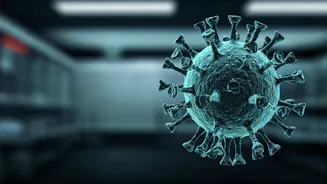What is the story about?
CBSE is set to introduce open-book exams for Class 9 in 2026. This shift is generating buzz. Let's dive into what this means for students and the Indian education system.
The Big Change
The CBSE is rolling out open-book exams for Class 9 starting in 2026. This means students will be allowed to use their textbooks and notes during the exams. This move aligns with the goals of the National Education Policy, aiming to promote a deeper understanding of concepts rather than rote memorization, a shift that is being closely watched by educators and parents across the nation.
Benefits Unveiled
Open-book exams can help students learn more effectively and reduce stress. These exams encourage critical thinking and the application of knowledge, crucial skills for the future. They shift the focus from just remembering facts to understanding and using them, a move seen as positive by many in India, where academic pressure is often high.
Possible Drawbacks
Critics worry about potential challenges. Some suggest that students might not prepare adequately, leading to a decline in basic knowledge. There are also concerns about making the exams too easy and the need for robust assessment methods to truly gauge students' understanding. These challenges highlight the need for a well-thought-out implementation.
NEP's Influence
The National Education Policy (NEP) is the driving force behind this change. The NEP emphasizes a shift towards competency-based learning. Open-book exams are a way to put this into practice. This alignment with the NEP is a significant aspect of the reform, as it pushes Indian education towards more holistic development and relevant skills.
What's Next?
While open-book exams promise exciting changes, their success hinges on careful planning. CBSE must ensure teachers are prepared, assessment methods are appropriate, and resources are available. The introduction of sample papers will play an essential role in helping students adjust and ensuring a smoother transition for the Class 9 students.





















